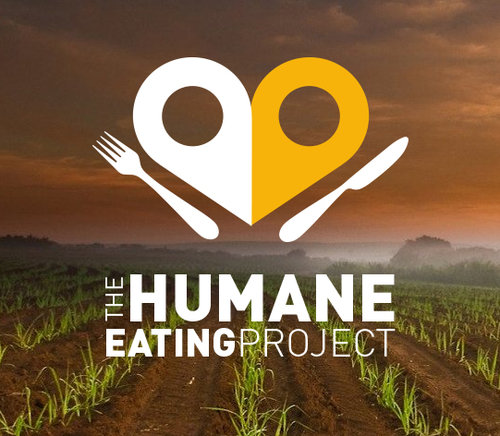As ethically-minded women, we strive to make compassionate consumer choices by purchasing goods and services that cause as little harm as possible to our health, other people, and the planet.
Leading such busy lives, it can however be tricky to do the right thing all the time. This is particularly true when it comes to the food we eat, especially when we dine outside of our own home. When attending a business lunch or eating out with friends we may visit an eatery selling products that fall below our high ethical standards; we may, despite our strong convictions, purchase food that we would avoid buying if we knew its origin.
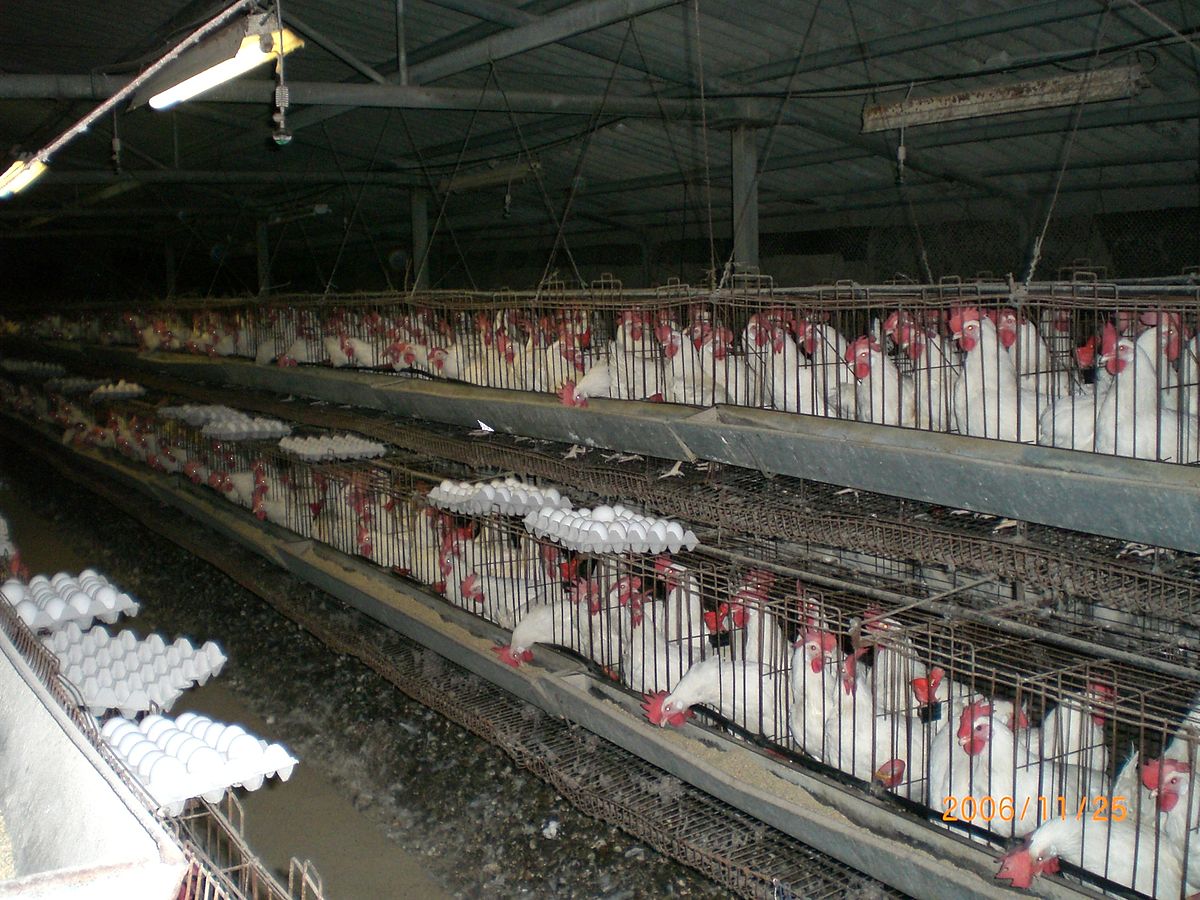
We might, for example, inadvertently end up purchasing a meal containing meat from an animal that was raised on a factory farm, or a dish containing eggs produced by a battery farmed chicken. Whilst making a conscious effort to shop ethically at the store – buying free range eggs, or sourcing meat from small local farms with excellent animal welfare standards – it is much more difficult to determine the origin of restaurant food.
It is important to know the origin of our food because the eating choices we make have a direct impact on the well-being of animals raised in the food industry. When we buy products from humane farms, we send a strong signal to food producers and retailers, and put pressure on them to improve welfare standards. We also challenge the hugely destructive impact that factory farming is having on the environment.
It is not an exaggeration to say that intensive animal agriculture is devastating the planet. For example, it has been estimated that some large farms produce more raw animal waste than the human population of a large US city and whilst this waste is supposed to be safely disposed of, in reality some of it ends up back in the natural environment. Phosphorus and nitrogen in the waste kills plant and animal life, creating huge ‘dead zones’ in the environment and poisoning our food and water.
Our water supply is also heavily polluted by the antibiotics and hormones that are fed to animals in today’s intensive farms. When we drink water and eat food contaminated with dangerous substances, we are gambling with our health as the long term negative impact of consuming such toxins is significant.
By making a conscious and educated decision to avoid factory farmed food, we as consumers are using our purchasing power to persuade retailers to source high quality, high welfare animal products. This is better for everyone – for our own health, for the welfare of farmed animals, and for the health of the planet.
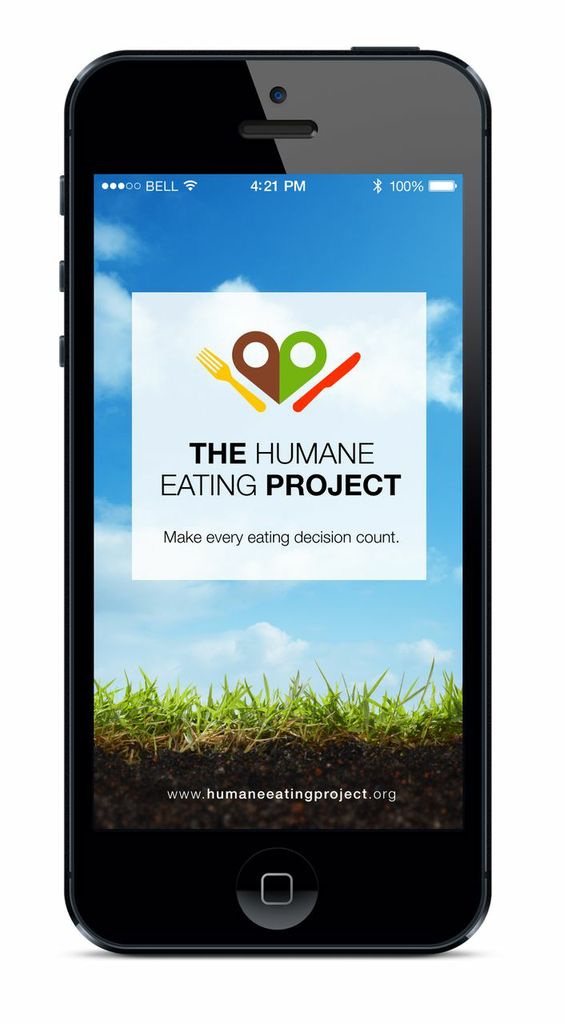
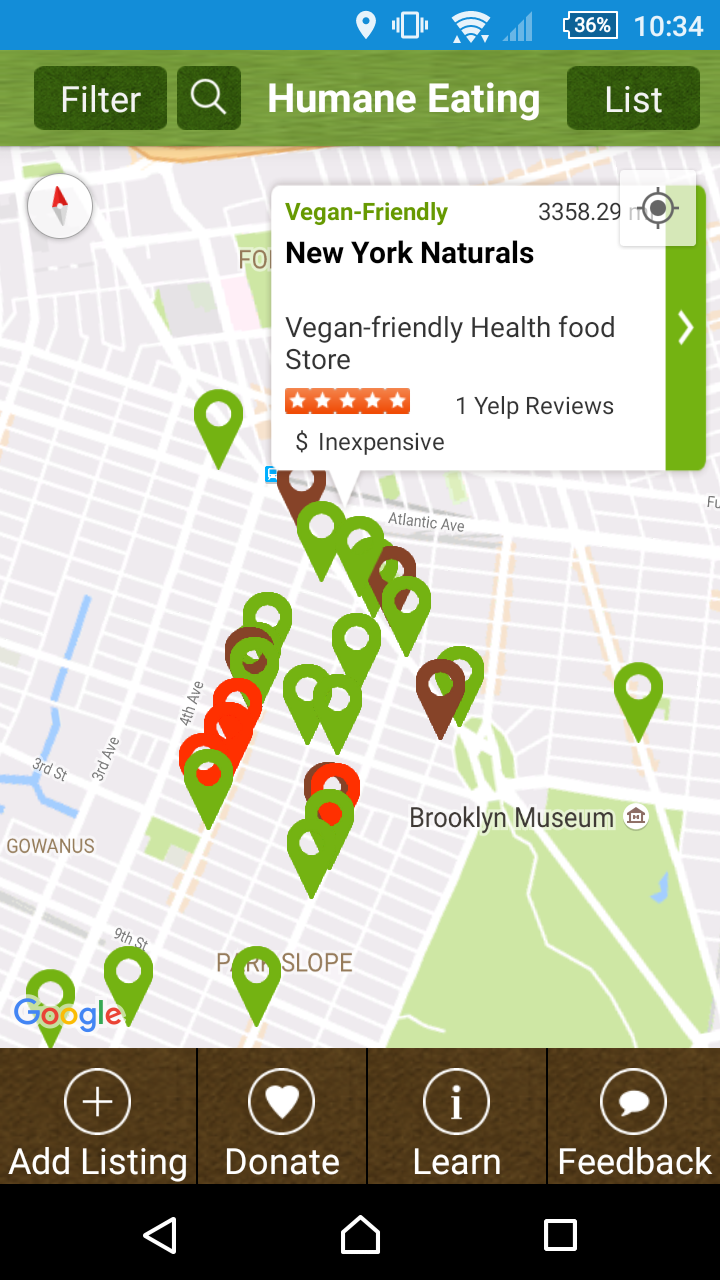
How can we make such informed eating choices when dining out at restaurants? There is a mobile app called The Humane Eating Project that can really help. Produced by the non-profit animal welfare charity America For Animals, the app helps you to locate humane dining options in your locality – a nearby restaurant selling humanely-raised meat dishes, for example, or an eatery where meals are made using free range eggs.
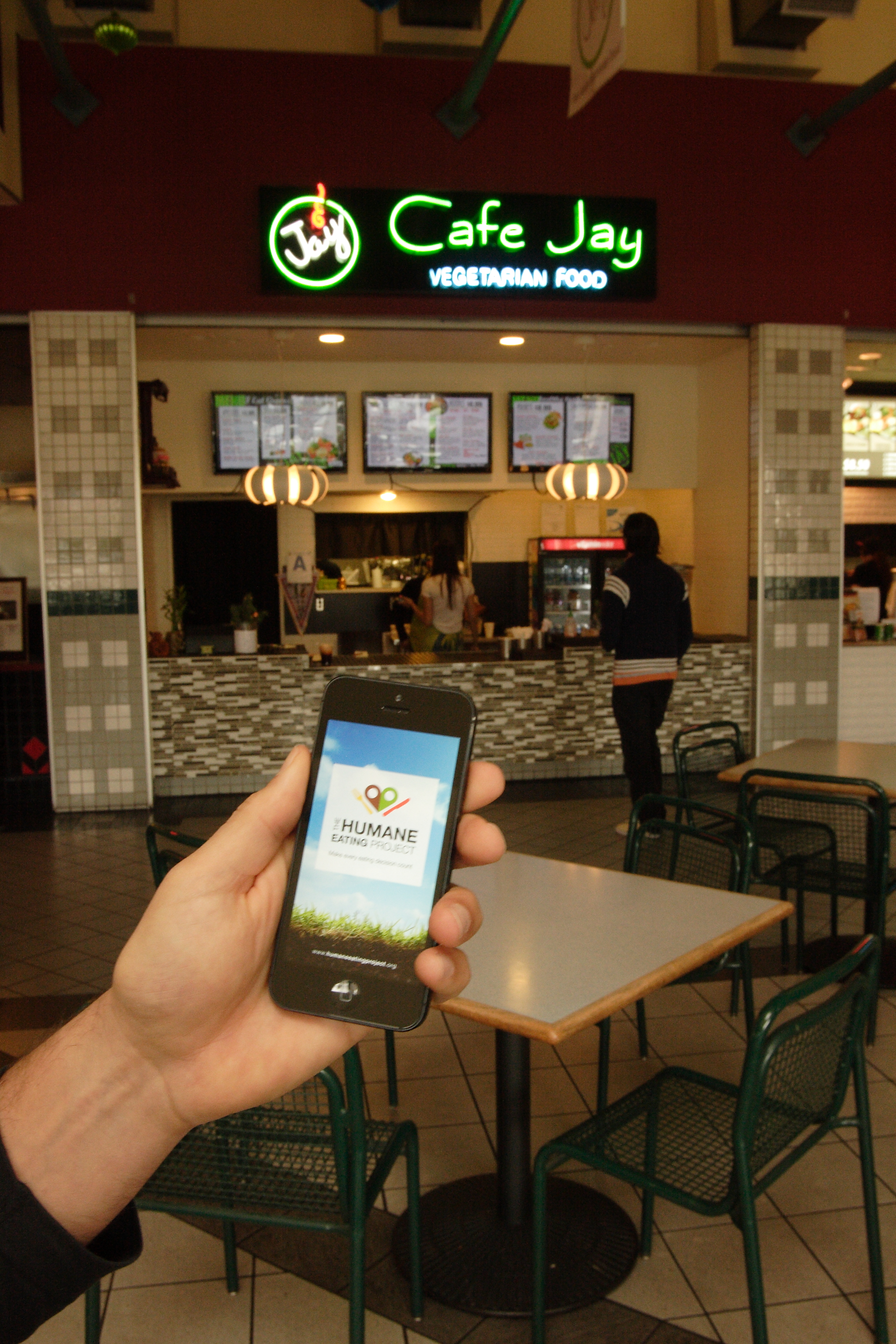
Eating humanely-raised meat is a great first step. Many people are also now deciding to forego meat entirely by pursuing a vegetarian lifestyle, whilst some are choosing to abstain from all animal products, by following a vegan lifestyle. The Humane Eating Project app helps vegetarians and vegans as well as ethical omnivores, by locating nearby restaurants serving vegan and veg options.
A useful additional feature of the app is The Humane Eating Project ‘Watch List’. This is a list of restaurants serving particularly inhumane animal products, such as foie gras and veal, to help you know which places you should avoid.
As an ethical consumer, The Humane Eating Project app will really help you to do the right thing.
Download it today from the App Store for iOS, and the Play Store for Android.
This Women of Green guest blog was written by America for Animals, a nonprofit organization which empowers advocates to promote compassion and fight animal cruelty in the communities where they live. We are headquartered in San Diego, but work with highly skilled volunteers around the world.
Women of Green is TURNING UP THE VOLUME of the feminine voice on the planet in order to create the world we know is possible.
